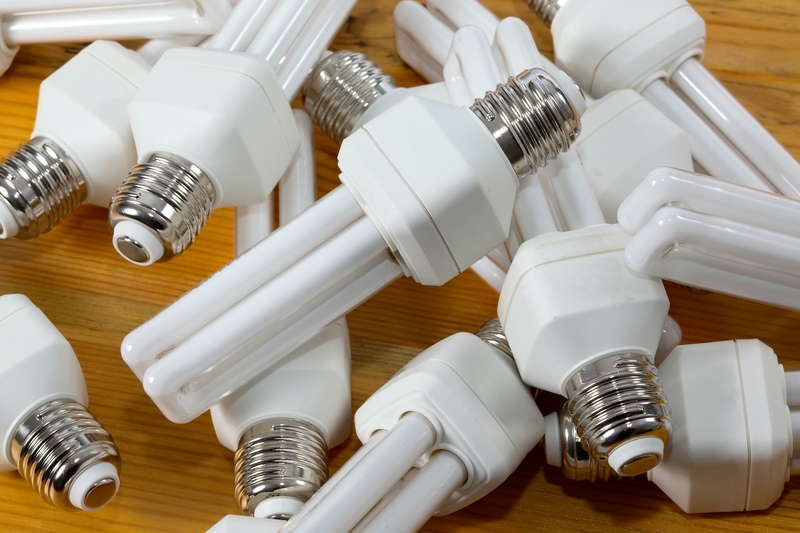How to Cut Costs When Getting Rid of Bulky Waste Items
Bulky waste disposal can pose quite a challenge--both logistically and financially. Whether you're renovating your home, clearing out an estate, or simply decluttering, knowing how to cut costs when getting rid of bulky waste items is essential. In this comprehensive guide, we'll explore smart, efficient, and budget-friendly ways to dispose of large waste without breaking the bank.

Understanding Bulky Waste and Its Unique Challenges
Before exploring cost-saving tips, it's important to know what qualifies as bulky waste. This category often includes:
- Sofas and mattresses
- Large appliances such as refrigerators and washing machines
- Furniture items--cabinets, beds, armchairs
- Old outdoor equipment (grills, lawnmowers)
- Carpets, large rugs, and similar items
Disposing of these items is different than handling everyday trash. They require special collection, may incur extra dumping fees, and sometimes can't just be left at the curb. Understanding your options is key to minimizing bulky item disposal costs.
Why Disposing of Bulky Waste Items Can Be Expensive
Several factors make bulky waste removal potentially costly:
- Transportation: Large items often require renting a van or truck.
- Special Collection Fees: Municipalities may charge for special pickups outside of regular household waste.
- Landfill Charges: Landfills charge based on volume or weight for large items.
- Labor: Some bulky removal services charge per hour or per item for labor.
- Environmental Fees: Appliances with refrigerants, electronics, or hazardous items could involve additional fees for proper disposal.
How can you avoid unnecessary spending? Let's dive into strategies for cost-efficient bulky item disposal.
1. Take Advantage of Free or Low-Cost Municipal Services
Most cities offer some form of free or discounted bulky waste collection once or twice a year. Here's how to maximize these opportunities:
- Check Your Local Guidelines: Look up your town or city's waste management schedule. Many municipalities provide curbside collection for bulky items on designated days.
- Register in Advance: Some areas require you to book your collection slot ahead of time. Early registration helps you secure a spot and avoid last-minute alternatives that may cost more.
- Bundle Bulky Items Together: Cities may allow multiple items per pickup. Combine all your large discards for the same collection to avoid paying repeated fees.
Tip: Check if your city offers a recycling day for electronics and appliances that have specific disposal requirements, as those events are often subsidized and cheaper than regular drop-offs.
2. Donate or Sell Usable Items
One person's trash is another's treasure. Donating bulky waste not only supports charity but can also save big on removal costs:
- Charity Pickups: Many organizations--such as The Salvation Army, Habitat for Humanity, or Goodwill--offer free pickup services for furniture and appliances. Check their websites and book well in advance.
- Local Community Groups: Use online platforms like Facebook Marketplace, Freecycle, OfferUp, or Nextdoor to post your items. If you list something as "free for pickup," you'll often find someone willing to haul it away the same day.
- Garage Sales: If your items are in fair condition, hosting a yard or garage sale may help you recoup some cost and ensure your bulky waste doesn't go to landfill.
Bonus: Donating to recognized nonprofits can sometimes result in a tax deduction--check your local tax rules to maximize your benefits.
3. DIY Dismantling: Take Items Apart to Lower Fees
Most waste collection fees are volume- or weight-based. By dismantling bulky items, you save money on the following fronts:
- Reduced Volume: Breaking down furniture or appliances lets you fit more into your vehicle, reducing the number of trips and total cost.
- Curbside Eligibility: Some municipal services will only pick up items below a certain size or weight. Taking items apart can make them eligible for regular trash pickup--zero to minimal cost.
- Metal and Part Recycling: By separating metal parts, you can even earn a small amount at scrap yards instead of paying dumping fees.
Pro Tip: Always observe safety and environmental precautions when dismantling items, especially those with electronics, refrigerants, or hazardous components.
4. Pool Resources With Neighbors
If your neighborhood is doing spring cleaning or renovating en masse, collaborative bulk waste disposal can drastically cut individual costs:
- Shared Dumpster Rental: Renting a roll-off dumpster is expensive for just one home, but splitting the cost among neighbors makes it affordable and convenient.
- Joint Hauling Services: Bulk contracts with junk removal companies can be negotiated for large-scale pickups, lowering per-home rates.
- Community Clean-Up Events: Organize or participate in municipal or HOA-sponsored cleanups. These often provide free or subsidized removal for all participants.
Collaborative disposal not only saves money but also fosters community spirit!
5. Recycle and Repurpose Where Possible
Many bulky waste items contain materials that can be recycled or repurposed:
- Metal, Wood, and Electronics: Scrap metal yards accept appliances, metal bed frames, and some electronics--sometimes even paying for them.
- Mattress Recycling Programs: Specialized facilities break down mattresses for recycling, costing less than landfill dumping in many areas.
- Creative Repurposing: Upcycle usable parts into DIY projects--table legs, headboards, even drawers can find new life in creative hands.
Before paying full disposal fees, check local recycling centers and creative reuse retailers for what they accept.
6. Compare Junk Removal Services
If you're hiring pros, comparing prices is key to smart budgeting. Here's how to get the best deal:
- Get Multiple Quotes: Don't settle for the first estimate. Call at least three services and compare what's included in the price--labor, transport, and disposal fees.
- Ask About Discounts: Some junk removal companies offer discounts for curbside pickups, senior citizens, or scheduling during off-peak times.
- Clarify What They Take: Check for exclusions (like hazardous materials or extra charges for stairs) in advance to avoid surprise costs.
- Consider Haul-It Yourself Options: Some companies rent you a trailer or bin, which you fill yourself--saving on labor costs.
A thorough price comparison ensures you're maximizing affordable bulky item disposal options.
7. Take It to the Dump Yourself (When Cost-Effective)
If you have access to a suitable vehicle and help for heavy lifting, self-hauling can be the cheapest way to get rid of large items:
- Flat-Rate Dumping: Most landfills charge a flat fee for small loads--cheaper than hiring a pickup service.
- Combine Errands: Plan trips when you already need to rent a van or truck for other moving or hauling tasks.
- Split With Friends: Combine items from multiple people in one trip to split costs and make fewer visits.
Tip: Check landfill rules ahead of time. Some only accept certain materials from residents, or charge different rates for commercial vehicles versus passenger cars.
8. Check for Manufacturer Take-Back and Retailer Haul-Away Programs
Many major retailers offer affordable--sometimes even free--removal of old appliances or furniture when you're purchasing a replacement:
- Retailer Haul-Away: Appliances stores like Home Depot, Lowe's, or Best Buy often remove your old refrigerator, washer, or mattress for a nominal fee when delivering your new one.
- Manufacturer Recycling: Some electronics companies take back TVs and computers for compliant recycling at zero or low cost.
- Local Appliance Dealers: Smaller sellers may also offer discounted haul-away if you ask--so don't be shy.
Always inquire about take-back options before finalizing a new purchase.
9. Avoid Illegal Dumping Fines
Trying to save money by dumping waste illegally can backfire in a big way. Fines for illegal dumping of furniture and appliances can range from hundreds to thousands of dollars, plus criminal charges. Always use legal waste disposal methods--even if it takes more effort up front.
10. Plan Ahead to Avoid Urgent Fees
Last-minute or emergency pickups often come with rush fees. If you know you'll need to get rid of bulky items, plan your disposal method early:
- Book Services in Advance: Early booking secures better rates and more flexible scheduling.
- Monitor Special Events: Cities often have "free drop-off" days around Earth Day or spring. Mark your calendar so you don't miss out.
- Avoid Lease End Rush: Moving out? Be proactive. Last-minute arrangements limit your choices and drive up prices.
Pre-planning is one of the simplest ways to keep bulky waste removal affordable.

Common Questions About Cutting Bulky Waste Removal Costs
What's the cheapest way to dispose of furniture?
The cheapest method is to donate usable furniture for free charity pickup or to sell/give it away online. For non-reusable items, breaking them down and fitting into regular waste (where allowed) or using municipal free pickup days will save.
How can I avoid landfill fees for appliances?
Look for scrap metal recycling options, manufacturer take-back schemes, or retailer haul-away when buying new appliances. Some areas offer special electronics recycling events at reduced or zero cost.
Can I leave large items on the curb?
Only if your municipality allows it--and often only by appointment or on set days. Leaving items out on the wrong day or without arrangement can result in fines.
How do I dispose of a mattress cheaply?
Mattress recycling programs are becoming more common and usually cheaper than regular landfills. Some cities offer free mattress recycling days. Otherwise, see if charities or thrift shops will collect it if it's still usable.
Conclusion: Smart Strategies for Affordable Bulky Waste Removal
Disposing of large items doesn't have to drain your wallet. With careful planning, leveraging free services, selling or donating what you can, and embracing DIY and collaborative disposal methods, you'll save money while responsibly clearing out your space. Remember, knowledge is your best tool--the more you know about disposal options in your area, the less you'll have to pay!
Ready to take action? Review your local municipal guidelines, explore donation options, and try out at least one of these strategies for your next bulky waste removal project. Your wallet (and the environment) will thank you!
Related Resources
- EPA Guide to Recycling
- Goodwill Donation & Pickup
- Earth911 Recycling Locator
- Habitat for Humanity ReStore
Whether you're seeking to minimize fees or maximize convenience, these tips for cutting costs when getting rid of bulky waste items will make your next decluttering project significantly easier and more affordable!